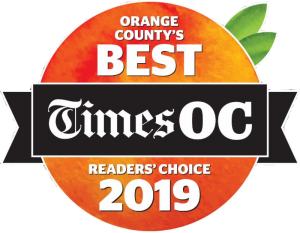
What is your title?
Director of Community Day Services
When did you begin working at PI?
I’ve been part of the PI family for decades. I originally began my career at Vantage Foundation and stayed for 15 years, working my way from Behavior Specialist to Associate Director. I even played a very small part when Vantage and Project Independence merged, so PI has always felt like home.
I officially rejoined Project Independence in January 2022, and it’s genuinely been a full-circle moment. It’s been my long-time hope to retire here, and I feel incredibly grateful to be part of a team and mission that means so much to me.
What drives you / motivates you to help others?
For me, it’s the relationships. Knowing that I get to be part of someone’s journey—whether it’s celebrating a first job, helping them navigate a tough day, or just being there, is incredibly meaningful. I’m motivated by the belief that everyone deserves to be seen, heard, and included. And when you see someone grow in confidence, build connections, or reach a goal they’ve worked so hard for, it reminds you exactly why this work matters.
What’s your favorite thing about working at PI?
Honestly, it’s all the first, seeing someone land their first job, take their first college class, or truly connect with their community for the first time. It never gets old. I also love the deep commitment our staff have to the mission and to the people we serve. Every day, our team and participants are out there building real, meaningful relationships, one small step at a time. That kind of impact? It sticks with you.
What are your favorite client successes?
One of my favorites is watching our participants become part of the senior center community. At first, the group wasn’t exactly welcomed with open arms. But our staff showed up with kindness, starting small, having conversations, offering to help, even calling out bingo games. Little by little, those efforts added up. Today, our participants are a valued part of that community.
I’ll never forget being told about the time when one of our seniors was out for a while, and several staff members and fellow seniors at the center reached out to ask how they were doing. That kind of care, when people notice you’re gone and genuinely care, that’s what belonging looks like. And that’s the heart of what our staff do every day: help build real, lasting connections.
What tips would you give to other people looking to work in your field?
Have fun with it! This work gives you the chance to see the world through someone else’s eyes, and that’s a gift. You’re not just a support person, you’re a facilitator, a community connector, and a coach. You get to walk alongside people as they reach goals, try new things, and grow. Some days are full of wins, and some are full of “let’s try again,” but every day, you get to make a small difference that adds up to something big.
What are three things you think the general population needs to know about people with developmental disabilities?
People with developmental disabilities are just people.
They’ve got hobbies, opinions, favorite foods, and pet peeves, just like you. A diagnosis doesn’t define who they are. Everyone’s got something unique to bring to the table, and people with developmental disabilities are no different.
Inclusion isn’t just nice, it’s important.
When people with disabilities are included in schools, jobs, and social stuff, it makes everything better for everyone. You get more diverse perspectives, more creativity, and stronger communities. It’s not about doing a favor, it’s about being real and connected.
Support means empowerment, not pity.
People with disabilities don’t need you to feel sorry for them. What they need is respect, access, and sometimes a little extra support to do things their way. When we focus on strengths and offer support with dignity, everyone wins.



